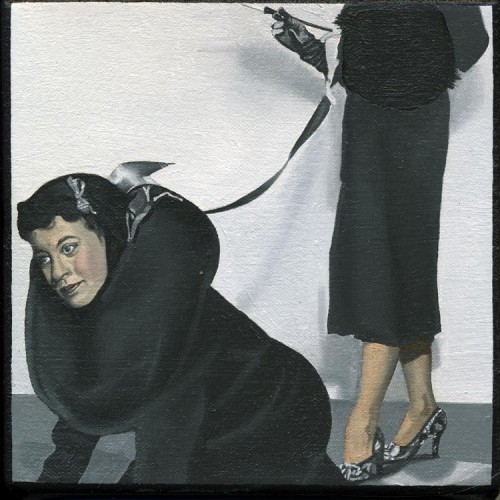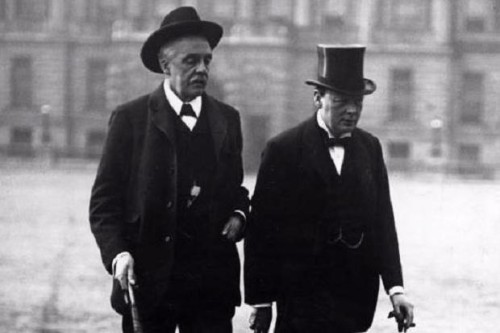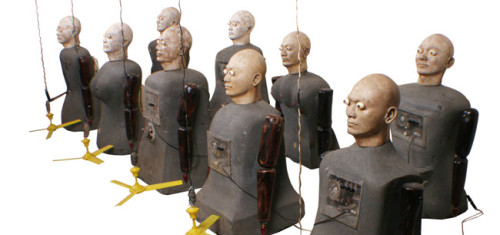
Dottie Attie
“The category of the Utopian, then, besides its usual and justly depreciatory meaning, possesses this other meaning – which, far from being necessarily abstract and turned away from the world, is on the contrary centrally preoccupied with the world: that of going beyond the natural march of events.”
Ernst Bloch (The Principle of Hope)
“Modernity today is not what it used to be.”
Peter Wagner
“The propertied class and the proletarian class represent the same human alienation. But the former feels well and self-confirmed in this self-alienation. It knows this alienation and sees in it its own impotence and the reality of an inhuman existence”.
Marx (The Holy Family)
Several stories connected to culture and art came out recently, and while ostensively about very different subjects, they are closely related. One was the announcement of the Turner Prize finalists. Second was an essay at Jacobin on art and socialism, and third was not so much a single story as a series of news items and articles all relating to *overpopulation*.
Now, the Tuner Prize is barely worth mentioning as it has devolved (and really it didn’t have far to go) into farce. It is part marketing and part delusion, but it does segue nicely to the piece at Jacobin. I will return to the Prize below, but I think its useful to begin with Alexander Billet’s article. Now, Billet is typical of many writers at Jacobin in that he is sort of faux populist. And like a lot of left writers there is also a default discomfort with Soviet communism and with Maoist communism. And this comes out of a distinct white American bias and paternalism toward the Russian revolution. Billet can be on the one hand quite articulate about the conformism of corporate culture in the West, and on the other hand uncritically accepting of mainstream opinion on Soviet communist history (and on contemporary Russian politics).
For this is not really about Stalinism, per se. It is about a failure to see the revisionist history of Russian communism as it is manufactured in the West. One can debate Stalin all day, and I’m less interested in doing that because it is not the point here. For even if one maintained a deep criticism of Stalin, it does not mean one has to also fall into those absurd cliched pictures of totalitarian society one sees in Hollywood film or mainstream news. The mental picture of communist Russia comes in no small degree, it is my opinion, from the observations of Guy Burgess and Kim Philby, the British spies, by way of Eton and Cambridge. Not, perhaps, the clearest picture of the Soviet Union. But their recollections became the stuff of countless fiction writers from Ian Fleming to even John LeCarre.
But regardless, one could imagine a Russian in London finding the city overbearing, crowded, expensive and dangerous even, without finding the beauties and cultural history of the place. Cultural displacement is never easy. My first months in Poland, when I had gone to teach at a small college of sorts in Kielce, were hugely depressing. It took me several years to really crack the surface of East European culture and appreciate its gifts. And even after 8 years I never felt at home. One rarely does. Anyway, the point is that anyone writing about art and culture would and should be well served by investigating just such phenomenon. And to more thoroughly question the cliches of western propaganda.

Hilma af Klint (1915)
And this is the issue with Billet’s recent piece at Jacobin. For right at the start Billet quotes Bhaskar Sunkara (from an earlier piece at the same magazine).
“The idiosyncratic question recently answered by Bhaskar Sunkara. Would socialists take away your Kenny Loggins records? More specifically, would we commandeer all property, leaving everyone to live drab, gray little lives, prevented from experiencing anything not also experienced by the collective? The Stalinist hangover of forced collectivization looms large, as does the propaganda opportunity it handed to conservatives.”
See? ‘Drab little lives’? Ah, the power of American self congratulation. It is worth pointing out that even with the unfortunate imposition of socialist realism as a guiding principle, enforced principle, the Soviet Union produced (and even more perhaps East Germany and other Soviet bloc countries) amazing art. Polish art was never as vibrant or experimental as under communism for example. But even saying that begs several other questions. The entire construct of this discussion is flawed at its root. And my comment above is probably just as flawed in some ways (more on that, too, below).
Much of what Billet goes on to say about labor and exploitation is quite correct. Debt servitude would be removed, and one would, ideally, be able to pursue one’s interests and passions without the anxiety of worrying about the rent or your child’s medical bills. The problem though, and this is common in most left magazines, comes with this paragraph:

Guy Burgess at Eton.
“To “un-alienate” both work and that which we produce, redistributing the massive surplus of society into the hands of working people, would for the first time in modern history break down the artificial barrier between “artist” and “audience.”
and then…“No more would “great art” simply be the purview of a lucky, transcendentally gifted few, but something symphonically integrated into our everyday lives. Socialism will be the first absolute unleashing of creativity in human history, in which the entirety of each individual’s imagination, talents, and mental and physical capacities would be allowed to blossom.”
On the one hand, yes, ideally the imagination of many would be freed to explore a sensuous and less sublimated engagement with the world. But we have no idea what that would look like. As Marcuse said, we have no idea what a non-repressive society would look like. But there will always be audiences. There will be ritual spaces of learning and contemplation. And since when is great art the purview of a lucky transcendentally gifted few? Not everyone wants to create artworks. What would happen for certain is the rise of artisanal culture, and with the loss of commodities would come something more like genuine individual autonomous discernment. But there is this problematic and vague image of everyone spontaneously running about being *creative*. And I’m not sure that’s at all right. It begs the question of what *creativity* is. The glibness of Sunkara and his Kenny Loggins jokes belies his fake populist commercial vision. Sunkara is a capitalist, remember. And Billet sort of knows this, I suspect. For Loggins is manufactured by Capital Records, as Billet observes, but in a world of non repressive engagement, nobody would *want* to listen to Kenny Loggins. Still, those humans who painted the cave walls of Lascaux were doing so in a highly mediated way for an audience. Even if, for some, that audience was God (or what might pass for God, eternity, posterity, etc.).

Johannes Kahrs
Now I know Billet gets this (I hope) because in an earlier article he quotes Angela Davis…
“Art is a form of social consciousness — a special form of social consciousness that can potentially awaken an urge in those affected by it to creatively transform their oppressive environments. Art can function as a sensitizer and a catalyst, propelling people toward involvement in organized movements seeking to effect radical social change.”
Art will always do something like this, even in socialist paradise. Socialism does not mean (notwithstanding my snide sentence) the creation of paradise. It is the creation of conditions for living that are non-exploitive. It means removing social hierachies and class systems of oppression. But in the end, humans are mortal. And we suffer that reality every minute we are alive.
Billet then writes…“But one of the contemporary American left’s greatest weaknesses is its skittishness regarding the concept of utopia. The ways in which neoliberalism has cut us off from the belief that humans can collectively build a better world goes hand in hand with the sidelining and co-optation of the avant-garde. It’s hardly a coincidence that these projects have been written off as fanciful and elitist.” Yes, true enough. The substitution of commodity form for a critical avant garde. But this introduces Adorno’s critique of art and modernism. We are not outside of history. Not socially and not individually. And how we engage with artworks is historical in part, and one in which consciousness must always work out its own traumas.

Tom Callemin, photography.
“The events of 1989 mark a decisive shift in the Zeitgeist: History
has zigged or zagged. No simple lesson follows, but it is clear that
radicalism and the Utopian spirit that sustains it have ceased to be
major political or even intellectual forces.”
Russell Jacoby
In other words, the fall of Communism completed a psychological disenchantment in the West. The rhetoric of the West, especially perhaps the U.S., is filled with lurid tales of Soviet horrors and crimes. This from the nation that bombed two civilian Japanese cities with Nuclear bombs, and has done nothing but wage endless aggression against the poor nations of the world ever since. A nation founded on genocide and slavery. But never mind, the image of communist crimes is seemingly indelible, even on much of the left today. Even reactionary social historians like Daniel Bell or Francis Fukuyama admit that society today has lost the capacity to dream of a better future, of a future different from the present.
“I hope that we can banalize the entire vocabulary of leftist political deliberation.{ } We must drop the term capitalism and “conclude that bourgeois democratic welfare states are the best we can hope for.”
Richard Rorty

Thomas Fougeirol
Submission to the status quo, the end of history, the internalizing of Western bias and exceptionalism. Learn to love your banality and anxiety. As Habermas pointed out a decade ago, even the vocabulary of liberalism is now obscurantist. Words like *public* or terms like *public space* do not mean public at all. Public housing is not open to the public. And public opinion is that which attracts public interest by way of mass media. Submission to control. So, what exactly do people like Sunkara think socialism means? I guess he means its part of a brand that he sells. Because he never misses a chance to denounce communism. And I suspect this is in recognition of the fact that saying anything good about the Soviet Union would elicit an outcry from this growing liberal/anarchist white audience of University educated readers of his brand.
Today, most Americans, and probably a good many Europeans, adhere to a default position that sees communism as *totalitarian* and conflate it with Nazisim. Except rarely is much said about the Nazis ideology. All countries with a communist party in control are labeled *totalitarian*. The word ‘communist’ is radioactive if you are hawking a magazine that one must pay for to read. The remaining Imperialist power is the U.S., the only nation with military bases circling the planet, and the only one actively engaged in non stop aggressions. The clear assault on Latin America; from a coup in Venezuela, to covert destablizing in central america, in Ecuador and the removal of a president in Haiti, are never seen as totalitarian actions. For this word is only one with aesthetic meaning. Nations with “drab little lives”, that Chiat Day commercial for Apple, the Orwellian movies of Hollywood — which are treated as close to factual rather than as sci fi.

Zhao Yang
Mass media works constantly to demean and demonize and trivialize radical movements such as The Black Panthers, and the Bolivarian Revolution, the Sandanistas, the Zapatistas, and certainly anything with the word communist in it. Bernie Sanders, a soft liberal who is right of Nixon in fact, is described as socialist. Socialist is turning into a term for those not OVERTLY racist and Imperialist. Now, I want to return to this idea of audiences below, because its fundamental to what is wrong with aesthetic thinking in the West today, but first this idea of manufactured narratives applies to science, too. The question of ‘overpopulation’ is rife with racist underpinnings and the odor of eugenics, forced sterilization, and coercive birth control. But it is also simply incorrect. There are not too many people in the world. There are too many living in slums on the hills of Sao Paulo, or in mud floored poverty in Lagos, or the slums of Mumbai, but there are not, globally, too many people. Ian Angus has written quite cogently about this. And it fatigues me to go over this again, so just read him…http://socialistworker.org/blog/critical-reading/2011/10/26/overpopulation-myth
But what is interesting is the turn toward bad science by much Green Party writers and activists. Someone sent me a piece about the food crises and how if the population keeps increasing (which it won’t but never mind) humanity is doomed, and I read it, and then bothered to read up on who funded the research. It was part of CGAIR, funded by the World Bank and with people in decision making positions who once worked for the U.S. Dept. of Agriculture. Now, this is often the result if one bothers to dig a little because the vast majority, the vast vast majority of scientific research in the West is underwritten by big western NGOs or the government. Most scientists, even ones with integrity and who want to be unbiased, still depend on employment by Universities underwritten in part, often a large part, by these same actors, and corporations, or who trained by people who worked for them. Science is heavily influenced by corporate and government existing policy. Now much of the green narrative these days is highly alarmist. And perhaps its all true. I’m not a scientist and maybe the coastal towns are going to be under water in a decade, but somehow I doubt it. And one does wonder at times if someone isn’t buying up a lot of coastal land very cheaply now. But maybe I’m just too cynical. And to be clear, I don’t doubt the earth faces a crisis. There is no question. And I have no doubt that it is man made. But the consequences of this crises remain unclear to me. But, there are two other factors involved in these narratives of overpopulation and climate change. One is that rarely is the U.S. military accused for its absolutely excessive pollution and monumental use of fossil fuels, not to mention depleted uranium and just the environmental costs of everyday weapons testing. And second, to even ask about this is to release the lynch mobs. I was accused of being an *overpopulation denier* the other day on social media. The term denier is really insidious. There has to be something to deny to be a denier. But this is the shutting down of thought. One cannot even question climate change, even in terms of consequences, without being attacked. One cannot voice any skepticism. Liberals accuse you of being a right wing denier — and this is the stealth fascism of writers like Jared Diamond. He is particularly blameful for shaping a kind of narrative that brooks no opposition. The comfortable white liberal class, those who recycle and drive Prius and eat vegan are ruthless in their intolerance for disagreement. I have never, personally, seen such rabid exaggerated outsize moral indignation as I have about green issues today. I have never seen indignation or outrage about dead Arab babies or child slavery or Western imperialist war that I see about things like overpopulation. And always, always, this narrative is decorated with scientific studies and numbers and projections. This goes along with the fear mongering about disease (always from Asia or Africa) such as Zika or Ebola or Bird Flu.

Arthur Balfour and Churchill, 1915. Leading supporters of Eugenics.
So, in a recent article over at Dissident Voice, a writer named Steven Salmony, writes about overpopulation. He keeps referring to Nature throughout and I wonder at what he means? Phrases like *nature’s balance* are pretty much meaningless new age babble. But Mr Salmony is one of the founders, or maybe *the* founder of an organization called (sic) AWAREness Campaign on the Human Population. I can’t find much about this organization. But there are a number of other groups and foundations devoted to fighting *overpopulation*. At the top of my search page was something called Population Matters. Ok, well a quick perusal of their advisory board shows links with the African Institute for Developmental Policy, the University of California, World Health Partners (with direct links to TATA corporation in India, Ricoh Innovations in Silicon Valley, and someone called Leith Greenslade, whose bio is worth reproducing in full….*Ms. Leith Greenslade is a Vice-Chair at the MDG Health Alliance, a special initiative of the UN Special Envoy for Financing the Health Goals in support of the UN Secretary-General’s Every Woman, Every Child movement. Leith served on the US Board of Gavi and in several positions with the Australian Government, including as Policy Advisor and Speechwriter to the Deputy Prime Minister and Minister for Health; as Economic Adviser to the Leader of the Opposition; and as Chief of Staff to the Shadow Minister for Social Security and the Status of Women.*), and best of all is that the founder of Population Matters is one David Wiley (now dead)— who is described in his official bio as a believer in Bentham and as an avid Malthusian. Also it should be noted that Population Matters has called for *zero net* immigration into the U.K. and for cutting benefits to families who have more than two children. Sir David Attenborough is a big supporter, too. In other words these are rabid racist elitist Eurocentric crazies.

Schalk van der Merwe
This is one perhaps exceptionally glaring example of a trend. But it is also representative. Science is locked into the system. And that system is run by wealthy people and their corporations or government agencies. The fingerprints of Bill Gates and Soros are everywhere when you start to look, and a lot of the high tech firms that subsidize research also have links to the U.S. government and often enough to the Pentagon. This is also the perverse effect of all institutional interrelations. (Mr Salmony is listed as working for The Social Security Administration, as a psychologist. Who knew). I draw no specific conclusions from all this, except that while it is clear there are serious environmental problems, I am not sure the narrative fixed on this reality is not obscuring more than it reveals. Plastics for example are a serious problem in the world’s oceans, but packaging is a huge industry and so the story of plastics is told less often than one might expect. The U.S. population can wax indignant about North Carolina bathrooms but seems mostly indifferent to foreign wars. North Carolina will have to accept the change, regardless of how many Christian assholes reside there. Foreign wars however show no sign of slowing down.

Boomoon, photography.
So, to return this is art and socialism, which in and of itself is a flawed way to discuss the topic of culture. If one allows that Capitalism creates commodity fixation and emotional trauma, that it manufactures inequality and class segregation, then it should also be clear that art, to be of value, must be an art that implicitly resists that system. All great art must in a sense be radical. But in form, not in ideology. And today, the subsuming of art by business is such that one sees complaints about *creative* people lacking in business models for their creativity. If it were not so tragic, it would be funny. And yet, too often publications like Jacobin find ways to kick spiritual dirt on Communism. Those *drab little lives* that were, apparently, lived by Eastern bloc nations. And this is a lazy default sort of cultural imperialism, finally. Art is not of political value except as a form of personal awakening. What Davis called a catalyst and sensitizer — and from such mimetic learning, or development, comes a kind of awareness. For even our individual psychic formation is historically mediated and our vision or reading of artworks is dialectical. When Billet writes that a hobby (terrible word) can be creative but is also work, there is something a bit wrong with that. Learning to play guitar or harpsichord or harmonica, is not strictly speaking work. One can stretch that point and insist that it is, but then we need, practically speaking, to be more careful with our words. Physical effort is not really work. For work to be de-alienated is be work without private property or class division. At which point a new word is needed.
“What all this adds up to is that a necessary condition for a truly communist society is a total departure from the culture of capitalism and consumerism. This would mean a wholly new approach to the design of cities and villages, transportation, location of industry, technology, and much more. Above all, the new culture would have to be grounded in a view of people’s needs and a way of life that would be consistent with the maintenance of a cooperative and egalitarian society.”
Harry Magdoff

N. Dash
Marx imaged a long slow process. A process toward transformation of the material world around us. Those early humans learned to work (sic) together, to share certain chores, and in the process learned to communicate. Speech was born of shared tasks. As Magdoff points out, labor gave people a reason to talk to each other. The secondary human transformation came with private property and class division. The division of labor came with that. The entire notion of leisure is a late bourgeois conceit, but that is not to say humans are predisposed to work or change things. The young certainly are as a part of maturation, but adult humans value contemplation. And there is, regardless of the societal structure, a need for such contemplation. For we all die. And such is the dawn of human allegory — the invention, as language developed, of metaphor. What Capitalism, advanced capitalism does is to suffocate such things. To debase language, to reverse all that is real human achievement, while manufacturing an artificial valorizing of progress in things not human. But there is a misconception at the heart of this sentence by Billet….“Liberating the vast material and cultural resources of Columbia, Sony, EMI, Verizon, Viacom, Sotheby’s, Lockheed Martin, Goldman Sachs, Martin-fucking-Shkreli, and the rest, and expropriating them back into the hands of those who actually made them would not just provide the time but transform the cultural landscape.” Firstly, the people who actually made them would in large measure still be the people making the art. Second, when Billet writes…“…in this way and only in this way can we ever really hope for music to be “yours,” or, for that matter, “ours.” Not just something to listen to and passively consume but something to critically engage with, to evolve through our varied myriad interventions, to shape, reshape, and repurpose as is seen fit”, he is assuming people today do not critically engage with artwork. They do. And some work is meant to be contemplated. And again, there is this odd and even a bit creepy background image of ‘life being art’ that smacks of some long lost Erhard Seminar Training summer camp. People no longer doing things except creatively. It’s slightly confusing, that idea. If I learn to keep bees, for example, as I did a couple years back, I do it because I enjoy it. I don’t think its creative nor do I think its art. It’s art for bees, maybe. But I am only the custodian of a natural process. I know furniture makers who create great one off pieces. Some don’t even sell them and actually lose money. Sometimes, mostly, they sell them. But they aren’t really in business. They all (the ones I know) have days jobs. They do it for love. That is creative. But they spent years learning how to do it. And that was a kind of labor. Intellectual labor. Physical, too. Apprenticeship can be de-alienated and it can be alienated. But nowhere in this does the image of massive creative outpouring seem at all likely. That’s a false Utopianism. What there will be is a drastic lessening of suffering and trauma and mental illness. Not everyone is artistic. But everyone can be imaginative and creative. There is a difference. Thirdly, consumption is what one does with commodities and I am not sure its done all that passively. Watching theatre is not necessarily passive at all. Fourthly, this is for a magazine run by Sunkara who charges money. Jacobin is a commodity. Perhaps start with making the magazine free. Then everyone (!) can read it.

Ken Price
In a speech Billet gave he speaks of collective ownership over society felt in the singing of various songs of revolution. Well, yeah, OK, but that’s oddly confused, too (not to mention he cited Les Miserables the musical). I mean sure, great. Singing is always great on some level. But art is not about fomenting revolution. Art is not for revolution. It does not speed up the revolutionary process. Art has no purpose, per se. But it does allow for awakening. Sensitizing as Davis put it. Billet also alludes to Pussy Riot for fuck sake which pretty much demonstrates the level of vulgar thought involved. It is dangerous, really, to not actively critique stuff like Billet’s article. Jacobin is a font of this naive half formed adolescent nonsense. A veritable repository of faux populist anti communism.
The Situationists (which Billet mentions) understood that revolution contained an aesthetic element. And they articulated this as part of a project of demystification of bourgeois society.
For this childish image of mass creative outpouring is just bad new age mush brained non thought. For at the end of that long slow gradual process Marx imagined, if he is right, would be a classless society of mutual cooperation. At that point creativity will occur in other ways. There won’t be any art. Perhaps. But it is also possible not all that much would change except for the elimination of acute irrationalism which is the result of private property. Cooperation is highly possible. And that is, in a sense, what Utopia actually looks like to me. But I suspect rivalry continues, in ways, jealousy and depression, too. Just a good deal less of it.
“The discovery of gold and silver in America, the expiration, enslavement and entombment in mines of the indigenous population of that continent, the beginnings of the conquest and plunder of India, and the conversion of Africa into a preserve for the commercial hunting of black skins, are all things which characterize the dawn of the era of capitalist production. These idyllic proceedings are the chief moments of primitive accumulation. “
Marx

Lisa Sarfati, photography.
It is important when discussions on the left (sic) turn Utopian to remember the fascist appropriation of Utopian aesthetics. Tim Dayton, writing on Ernst Bloch…
“For Bloch utopia is not just a subject for rational construction and projection into the future, but also something very much present in the here and now. Thus utopia is not the “no-place” of the word’s Greek origins, but rather something present in the now, although available only in glimpses or image-traces.
Furthermore, these utopian image-traces are not necessarily wed to “progressive” politics. Indeed, one of Bloch’s most acute analyses of the utopian dimension concerns its function in the appeal of fascism,(3) which is able to activate anti-capitalist imagery that works as an anticipation or prefiguration of utopia. Thus this reactionary movement appeals to longstanding popular traditions renounced by the overly rationalist left of the nineteenth and especially twentieth centuries.
By refusing to have any truck with “mystical” and “irrational” protests against the alienation and repressive rationalization of industrial capitalism, the left participated intellectually in the very same quantitative (and in its own way mystifying) logic as did its opponent, Capital, and ceded important terrain to the forces of reaction.”

Bernardo Daddi (Detail, The Assumption 1337).
Thomas More wrote Utopia, the ur-Utopian text obviously, contemporaneous with (almost) Machievelli and the the invention of the printing press by Gutenberg (roughly 90 years earlier). This span of time can be seen as the origin of modern notions of the public and *society*. Bloch was very concerned with that impulse in people that was Utopian. And he saw that impulse in a minor way in everyday life. In daydreams and idle wanderings. And he felt there was something he called *anticipatory consciousness*. In 1963 Bloch did a moderated discussion with Adorno on the topic of Utopia. In it he said…
“At the very beginning Thomas More designated utopia as a place, an island in the distant South Seas. This designation underwent changes later so that it left space and entered time. Indeed, the Utopians, especially those of the eighteenth and nineteenth centuries, transposed the wishland more into the future. In other words, there is a transformation of the topos from space into time. With Thomas More the wishland was still ready, on a distant island, but I am not there. On the other hand, when it is transposed into the future, not only am I not there, but utopia itself is also not with itself. This island does not even exist. But it is not something like nonsense or absolute fancy; rather it is not yet in the sense of a possibility; that it could be there if we could only do something for it.”
Space to time. From a place, to an idea. The idea of the possible.
Adorno a moment later said….
“It seems to me that what people have lost subjectively in regard to consciousness is very simply the capability to imagine the totality as something that could be completely different. That people are sworn to this world as it is and have this blocked consciousness vis-a-vis possibility, all this has a very deep cause, indeed, a cause that I would think is very much connected exactly to the proximity of utopia, with which you are concerned. My thesis about this would be that all humans deep down, whether they admit this or not, know that it would be possible or it could be different. Not only could they live without hunger and probably without anxiety, but they could also live as free human beings. At the same time, the social apparatus has hardened itself against people, and thus, whatever appears before their eyes all over the world as attainable possibility, as the evident possibility of fulfillment, presents itself to them as radically impossible. And when people universally say today what was once reserved only for philistines in more harmless times, “Oh, that’s just Utopian; oh, that’s possible only in the land of Cockaigne. Basically that shouldn’t be like that at all,” then I would say that this is due to the situation compelling people to master the contradiction between the evident possibility of fulfillment and the just as evident impossibility of fulfillment only in this way, compelling them to identify themselves with this impossibility and to make this impossibility into their own affair. In other words, to use Freud, they “identify themselves with the aggressor” and say that this should not be, whereby they feel that it is precisely this that should be, but they are prevented from attaining it by a wicked spell cast over the world.”

Andisheh Avini
And I think these are rather profound observations. I sense a guilt in people today, a guilt attached to a deep sense that things do not have to be as they are. And that they are complicit. That identification with the aggressor is something that has surfaced again, I feel, in the Zeitgeist. Our contributing to our own oppression. But this guilt is tinged with confusion because the totality represents itself (or is represented to us) as impossible to grasp. One hears all the time that the world of Luther, or Machiavelli was so small in comparison. And I feel technology has not made the world smaller but actually made it quite a lot bigger. Bigger and vaguer. The accumulative details only serve to further mask the totality.
And some of this knee jerk populism, the sort that wants to suggest Kenny Loggins is an amusing eccentricity (and to hip up the brand with a bit of irony), is also linked to the reactionary blindness of the bourgeois Green. For this new Green, or not SO new Green is increasingly invested in a racism, a white supremacism that is seen in Donald Trump, in Zizek, in the Christian right, but also in the permitted bigotry directed at Muslims. The club used is *responsiblity*, a club to beat your neighbors with. You drive a diesal SUV? I must beat you. You are a denier about climate change, about overpopulation, about Putin, and on and on. And so even a topic such as Putin, say, becomes infused with the nearly religious fervor of global warming. Suddenly most everything is part of this new Environmental consciousness. Certainly eugenics is. Its not called Eugenics, but that’s exactly what it is. The world’s poor consume the least. The poor are not the problem, in fact the poor are never the problem. And yet, this is all simply performance, for nobody is organizing mass strikes or confrontations. Do they care so little if their children die young? Or do they not believe it, deep down, do they reserve a sense of Utopian dreaming that is set into this private future? Or, is the sense of fear simply paralyzing?
There is a denial about how lives are controlled. The hegemonic military and policing power of the Imperialist West is terrifying.

George Condo
“It was fascism that clearly brought to light once again the genuine oppressive nature of the state, which had been kept exceptionally hidden and had been relatively latent. The semblance of a “constitutional state,” which was still possible to maintain with minimal class contradictions, was completely broken down. If the bourgeois state was “nothing more than a mutual insurance company of the bourgeois class to guard itself against its own members as well as against the exploited class,” according to Marx and Engels, it has become solely an insurance company to guard against the exploited in the monopoly-capitalist stage, that is, after the disappearance of free competition under the bourgeoisie.”
Bloch
In that same dialogue with Adorno, Bloch goes on to say…
“Nailing the coffin puts an end to all of our individual series of actions at the very least. In other words, it also depreciates the before. { } To be sure, this strongest counter-utopia exists, and that must be said to make things more difficult. Otherwise, there would not be that Heideggerian ‘creature’ (Wesen) at all, if there were not something here in the reality that is unavoidable and has no history up till now and no change in the real process – thus, if this reality itself did not ward itself so extraordinarily from the test case.
And here we touch on the area of the feeling of freedom. It is related to the “dreams of the better life,” which portray the social Utopias, but it also distinguishes itself from them. In the social Utopias, in particular, the best possible communal living conditions are determined either through freedom or through order. Here freedom is a variable or auxiliary for the best possible life. Freedom as feeling does not appear in utopia but in natural law, and to be sure, in the liberal natural law of the eighteenth century in connection with the upright gait, in connection with human dignity, which is only guaranteed by freedom.”
and Adorno responded a bit later…
“There is something profoundly contradictory in every utopia, namely, that it cannot be conceived at all without the elimination of death; this is inherent in the very thought. What I mean is the heaviness of death and everything that is connected to it. Wherever this is not included, where the threshold of death is not at the same time considered, there can actually be no utopia. And it seems to me that this has very heavy consequences for the theory of knowledge about utopia – if I may put it crassly: One may not cast a picture of utopia in a positive manner. Every attempt to describe or portray utopia in a simple way, i.e., it will be like this, would be an attempt to avoid the antinomy of death and to speak about the elimination of death as if death did not exist. That is perhaps the most profound reason, the metaphysical reason, why one can actually talk about utopia only in a negative way, as is demonstrated in great philosophical works by Hegel and, even more emphatically, Marx.”

Heri Dono
Now just to end here with something interesting that Bloch said about Soviet culture.
“It is relatively easy to grasp the equation economy = state, to be sure, not according to the way the beneficiaries at the time understood it, but according to Marxist terms. However, with regard to the fields of art, religion, and philosophy, the components predicated on the same illusory givens cannot be explained directly by the Marxist analysis or even partly by the base. The cultural forms with which human beings become aware of social conflicts, engage in them, or surpass them, such forms could only be developed in a well-intentioned manner. Thus, the cultural-ideological change is just as imperceptible from the Marxist analytical viewpoint as is the political shift. This is due to the fact that the cultural shift shows a creative, reflecting consciousness that demonstrates manifold ways of transformation. This distinction evaded the materialist analysis itself, especially when it tended to take art, etc., too lightly. The economic schematism could not have been more inappropriate in dealing with Pushkin or even with Tolstoy, in the early days of the Soviet Union.”
This is important because art and culture are operating in several different registers at once. Dostoyevsky was difficult for Soviet critics to come to terms with, while Gogol was easily labeled a representative of landowner social relations. Tolstoy the authentic voice of ‘wordly aristocracy’, etc. Schematic reductions. And while I had intended to touch on the Turner Prize, it’s probably just as well that I never got to it. As Bloch points out, to walk inside the ruins of an ancient Greek temple and be captured with a sense of the sublime is not arbitrary.
“Here is the point: human beings make the economy together with the superstructure, which does not always have a hazy reflection; in turn, the economy and the superstructure together make human beings again in the totality of the subject-object relationship, without the undialectical antagonisms derived from abstraction.”
Bloch
Dante and Andrei Rublev, Jan Van Eyck — creating work from a feudal society under control of the Church, were also doing more than validating that Church. Donatello’s sculptures are strikingly out of time. The point here is that art is extra-ideological, while often also being ideological, often accidentally. And that that word, *creativity* is something probably shelved after the second grade. Finger painting is creative. It has taken on connotations that render it a ‘comfort word’. And I realize I used it often myself, but I think maybe its outlived its usefulness. In any event, art is not comforting, and it’s not your friend. It is also not your enemy. And one can cry with enemies and feel hatred with friends.
“(Janis) hypothesizes that decision making groups are most likely to experience
groupthink when they are highly cohesive, insulated from experts, perform
limited search and appraisal of information, operate under directed leadership,
and experience conditions of high stress with low self-esteem and little hope
of finding a better solution to a pressing problem than that favored by the
leader or influential members.”
Turner and Pratkanis.
There is a phrase common in military culture; *the bus to Abeline*. Its also referenced a lot in management courses and the like. Basically, it goes like this…as explained by Retired Colonel Stephen Gerras:
“A family sitting on a porch in Texas on a hot summer day, and somebody says, ‘I’m bored. Why don’t we go to Abilene?’ When they get to Abilene, somebody says, ‘You know, I didn’t really want to go.’ And the next person says, ‘I didn’t want to go–I thought you wanted to go,’ and so on. Whenever you’re in an army group and somebody says, ‘I think we’re getting on the bus to Abilene here,’ that is a red flag. You can stop a conversation with it.”

As Alexandr Solzhenitsyn once observed, Thomas More, 16th-century author of Utopia, invented the idea of the forced-labor camp. And the word “utopia,” which More coined, means nowhere (from the Greek). More was a funny dude.
(At some pint Utopia…no place…got merged to Eutopia…the happy place.)…
Noticing things recently to link the issues here to the earlier post about antiSemitism, which is truly now exploding in dissident conversations and at the same time being invented where it is not (Corbyn scandal, for example). That this is going on simultaneously really does suggest management and guidance by malicious psychological ops. Like Counterpunch always had some antisemites…the Christensons…but they seemed to sneak in by disguising themselves, and by having at least the appearance of a valuable journalsitic contribution to make. But now I am really finding this stinky stuff everywhere, places where it should be, and the kind fo spectacle thinking that goes with it. Which is just like the overpopulation mythology. It’s not rational but it is pseudorational; not science by pseudo-science, they take care to mimic science but in a peculiar way. People worried about overpopulation and the worldwide jewish conspiracy are very similar, and sometimes the same people. They have the same tendency to mistake metaphors at the level of spectacle for concrete historical evidence — to read reality like a movie, and say well (example) President Republican named one of his holding companies Sparta Holdings, then that’s a clue — as it would be functioning in symbolic text like a novel or movie — about the intention to destroy Athens, i.e. the ruling class assault on Greece. Or any even in life that looks like what you’re supposed to pick out in a tv show and remember – ok you know that was significant that in the diner he gets the wrong change — must be the clue that we as audence/politically astute researches should follow to unravel the plot that MUST be finally accessible (we must have all the info available to figure out the secret operations of secret agencies) because that’s how tv genres are. You always find out. Everyting is always finally visible. There is this faith and then unfortunately the actual acts of researching and looking critically at evidence (at videos…for example looking attentively at the White Helmets vids you can see they’re all staged) is tainted with this mentality also by being associated with movies that either are classic paranoid conspiracy movies deriving ultimately from the JFK assassination and the sceptics of the official report, or movies that lampoon the sceptics. But there are these people who have gone down the rabbit hole, and then they serve as tools to discredit actual research and investigative journalism, because they do a version of the same kinds of looking into stuff.
The people who think and talk about overpopulation are dealing with the same spectacle reality. The “pullulating poor” (a phrase used by Anthony Burgess, I recall, years ago in a review of Amitav Ghosh’s wonderful first novel). There is the same pseudo science. This kind of thinking, of kind of fluidly moving between observing historical reality and reading it like a symbolic or at times allegorical spectacle, is what Zizek has normalized even in regions of professional culture production where once there was pretty good discipline keeping such shit out. The styles of entertainments now reflect this…the non existent diegesis Iwhich still haunts pomo movies like a spectre), the pomo flexibility. I know you didnt like Kill List, I saw it recently and thought it was very good, but I’m raising it as an example of something, how it movies into another register and symbolic status than it begins it, and at the same time remains in the register of origin. it’s truly undecided and undecidable, truly ambiguous and more than ambiguous, truly multivalent and simultaneously realism and several types of fantasy and allegory. I also saw not long ago a strange documentary about cultish fans of the Shining that all “read” the film as a kind of gospel, they do exegesis in search of secret messages. Sometimes these overlap with actually textual interpretation, and sometimes they’re like the way these jewish plot people would react to President Republican having a holding company called Sparta or whatever. Kill List is rare in cinema in being a genre film that very obviously lays its fantasy and allegory on top without replacing the diegesis of genre. But to a certain kind of reader, this would not be tolerable – one has to decide what in the film constitutes a ptsd mania, if he has ptsd, etc.. One needs a referent to an imaginary relatity, a pseudo reality that has the integrity of historical reality beyond the frame. A truth. The pseudopolitics of jewish plot and overpopulation — and Zizek’s pseudo analyses — create these spectales that serve like films (by selecting elements of news items) and then use them to construct these completely fictional real referents that have to have this same satisfying relation to their spectacle; you realize that “can’t tell the difference between illusion and reality” has become a banal truth but in a tricky way. On the one hand people know, but cannot feel, the difference between newsfootage of real violence, say, and staged fictional violence. They can say which is which but they can’t feel any differently and don’t miss being able to – dont know they should. Elements of physical emotion and “the body”‘s reactions have been dismantled, decoupled from thought. All this training, exposure to spectacle – to feeling phsycially like you’re falling off a buolding while being perfectly certain intellectually that you are in a seat in a movie theatre secure. This is undoing our minds, or bodyminds, our souls, but under illusion of the mind/body split it seems harmless. But this not being able to tell the difference between illusion and reality, between sign and substance, then shows up in the overpopulation and the zog materials.
“places where it shouldn’t be” that should say, like where people do have an M-L education
@molly:
Yes there is a huge interconnection or overlap between the overpop people and this new anti semitism. ~And there are a number of factors. One is the white anarchist University student..comfortable and sort of career minded is influenced by these odd fringe liberatarian types you find on alex jones sites, or lew rockwell or even antiwar dot com (though many are good over there) and then by the likes of Zizek and atzmon and its intersected by some very good critical thinkers, leftists, like Petras, who are shockingly anti semitic , in fact. So there are a number threads running through this. But I find Jacobin is more just nakedly opportunistic and commercial minded and indifferent to overall quality. And many are young, like Billet. But the more salient point is that these myths are reinforced by this pseduo science. And here is where I blame the really insidious effects of TED talks and the jared diamond people. And i dont think there is too much debate that much of the overpopulation mythology is planned by government agencies. For whatever purpose. I have no real idea other than control is their raison d’ etre. I had a guy tell me this week, well, the poor in africa fish using dynamite…so they are not blameless. I mean what does one say to that? What you call this free floating symbol is also linked to the myth of neutrality. Scientific neutrality. As if there is not just impartial scientific observation, but an impartial world, as it were. That the world presents itself in neutral way, presents itself to BE scientifically observed. Its crazy, the results are crazy. And i keep harping on the fact that eugenics has not gone away, at all, and in fact is making a big comeback.
Alan Weisman was on TV recently here in Spain with his message of overpopulation and doom and a great amount of people seemed to gulp it down without great discomfort.
To give some of the above mentioned ideas a demotic spin- which is about all I’m capable of- ‘vivan las cadenas’ seems to be on the rise. It is quite palpable.
Disentangling natural law, resurgent Counter-Reformation and counter-utopia is way beyond my ken but i intuit that slavery, mental and otherwise, lies at the end of it.
And speaking of half formed adolescent nonsense, as a young man I used to think that fear as a commodity would one day depreciate in value as people grew tired of its attendant effects. How ingenuous is that?
@Bas;
Weisman is exactly the typical marketer of this stuff. I glanced at a recent NYTimes article on him (and his new book…seems that dire events only warrant ink if there is a new book being launched) and the Times makes random asides like “scientists estimate../.” without ever telling you which scientists in which study, or anything at all. Just this free floating meme — catch all phrase…..”scientists estimate…”. And then a few examples of poor arab and african countries.
I don’t know John- there are problems with A state of Israel that are hard to ignore.
and what in anything I said suggests otherwise?
Nothing- sorry I Just reread Petras March meritocracy screed.
Still you haven’t mentioned, or emphasized, that the denial of this reality creates the environment for Petrass screed. I thinks that’s key and you don’t mention that.
Firstly thats not true. If you search this blog you will find a good deal of discussion of anti Arab bigotry, of Zionist colonialism, and US/Israeli cooperation in Imperialist projects. So if you weren’t so lazy, we wouldn’t have had to have this brief discussion. Here is just one example I recall off the top of my head. http://john-steppling.com/2014/08/uncancelled-stamp/
and http://john-steppling.com/2014/08/primal-crimes/